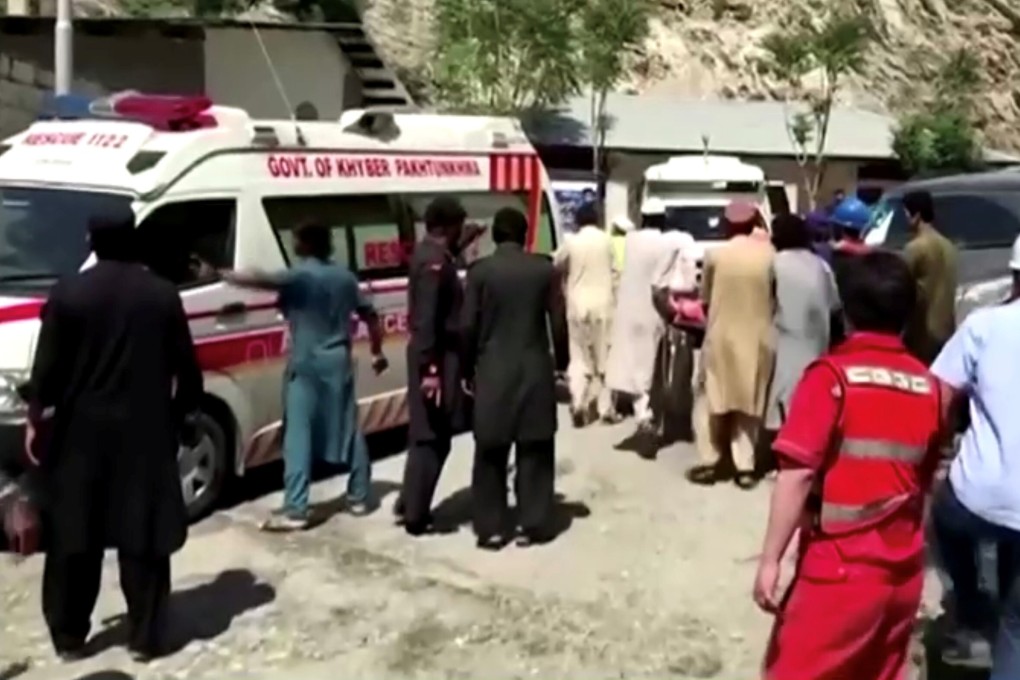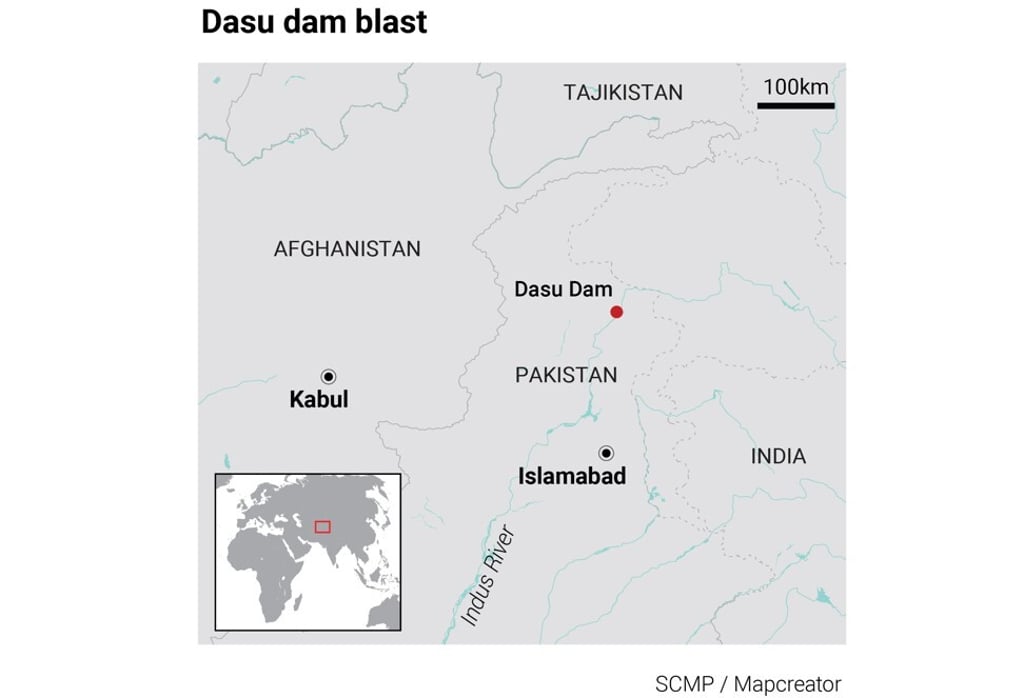Advertisement
‘Delicate moment’ for China, Pakistan as suspicions rise that bus blast was terrorist attack
- Bomb blast that killed nine Chinese workers on their way to Pakistan’s Dasu dam probably work of militants, experts say, though official conclusion is pending
- Blast unlikely to give China cold feet about belt and road investments in Pakistan, but diplomatic relations will suffer, analysts say
Reading Time:4 minutes
Why you can trust SCMP
10

The deaths of nine Chinese workers in a bus explosion in northern Pakistan on Wednesday morning represent a “delicate moment” in relations between the close allies, a diplomatic source in Islamabad said.
While no militant group has claimed responsibility yet for the blast on the bus carrying Chinese engineers, surveyors and technicians, there are strong suspicions among analysts that it was a terrorist attack, given simmering opposition towards China’s investments and a rise in terrorist activities in Pakistan. On Thursday Pakistan’s Information Minister Fawad Chaudhry said initial investigations had confirmed traces of explosives. “Terrorism cannot be ruled out,” he said on Twitter.
The South Asian nation is expected to be heavily affected by the withdrawal of American troops in Afghanistan as Taliban insurgents continue to capture key areas.
Advertisement
Officially Beijing has not drawn any conclusions, with China’s Foreign Minister Wang Yi urging Pakistani authorities to get to the bottom of the incident and China sending a special team to Pakistan to work with local authorities in the ongoing rescue operation and investigation.
The blast sparked an engine fire and plunged the bus into a ravine, according to a local official, and a further 28 Chinese nationals were among the 36 people injured. They were on their way to the site of the World Bank-funded Dasu hydropower project, located on a stretch of the Indus River running parallel to the Karakorum Highway – the sole overland link between two countries.
Advertisement
Advertisement
Select Voice
Choose your listening speed
Get through articles 2x faster
1.25x
250 WPM
Slow
Average
Fast
1.25x
